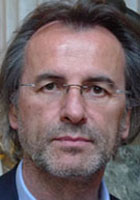Studying at the University of Verona
Here you can find information on the organisational aspects of the Programme, lecture timetables, learning activities and useful contact details for your time at the University, from enrolment to graduation.
Academic calendar
The academic calendar shows the deadlines and scheduled events that are relevant to students, teaching and technical-administrative staff of the University. Public holidays and University closures are also indicated. The academic year normally begins on 1 October each year and ends on 30 September of the following year.
Course calendar
The Academic Calendar sets out the degree programme lecture and exam timetables, as well as the relevant university closure dates..
| Period | From | To |
|---|---|---|
| 1° periodo di lezioni - 2° anno (1A) | Oct 3, 2016 | Nov 5, 2016 |
| Periodo riservato ad eventuali recuperi di lezioni (1A) | Nov 7, 2016 | Nov 12, 2016 |
| 1° periodo di lezioni - 1° anno (1B) | Nov 10, 2016 | Dec 17, 2016 |
| Periodo riservato ad eventuali recuperi di lezioni (1B) | Dec 19, 2016 | Dec 20, 2016 |
| 2° periodo di lezioni - 2° anno (2A) | Feb 9, 2017 | Mar 18, 2017 |
| Periodo riservato ad eventuali recuperi di lezioni (2A) | Mar 20, 2017 | Mar 25, 2017 |
| 2° periodo di lezioni - 1° anno (2B) | Mar 23, 2017 | May 6, 2017 |
| Periodo riservato ad eventuali recuperi di lezioni (2B) | May 8, 2017 | May 11, 2017 |
| Session | From | To |
|---|---|---|
| Sessione invernale - 2 appelli | Jan 10, 2017 | Feb 8, 2017 |
| Sessione estiva - 2 appelli | May 12, 2017 | Jul 15, 2017 |
| Sessione autunnale - 2 appelli | Aug 28, 2017 | Sep 30, 2017 |
| Session | From | To |
|---|---|---|
| Sessione estiva - luglio 2017 | Jul 4, 2017 | Jul 4, 2017 |
| Sessione autunnale - ottobre 2017 | Oct 16, 2017 | Oct 16, 2017 |
| Period | From | To |
|---|---|---|
| Festa di Ognissanti | Nov 1, 2016 | Nov 1, 2016 |
| Vacanze di Natale | Dec 24, 2016 | Jan 6, 2017 |
| Vacanze di Pasqua | Apr 14, 2017 | Apr 18, 2017 |
| Festa della Liberazione | Apr 25, 2017 | Apr 25, 2017 |
| Festa dei Lavoratori | May 1, 2017 | May 1, 2017 |
| Festa del Santo Patrono - San Zeno | May 21, 2017 | May 21, 2017 |
| Festa della Repubblica | Jun 2, 2017 | Jun 2, 2017 |
Exam calendar
Exam dates and rounds are managed by the relevant Law Teaching and Student Services Unit.
To view all the exam sessions available, please use the Exam dashboard on ESSE3.
If you forgot your login details or have problems logging in, please contact the relevant IT HelpDesk, or check the login details recovery web page.
Should you have any doubts or questions, please check the Enrollment FAQs
Academic staff
 roberto.flor@univr.it
roberto.flor@univr.it
 gianluigi.lucietto@univr.it
gianluigi.lucietto@univr.it

Migliorati Lorenzo
 lorenzo.migliorati@univr.it
lorenzo.migliorati@univr.it
 045802 8135
045802 8135
Study Plan
The Study Plan includes all modules, teaching and learning activities that each student will need to undertake during their time at the University.
Please select your Study Plan based on your enrollment year.
1° Year
| Modules | Credits | TAF | SSD |
|---|
2° Year activated in the A.Y. 2017/2018
| Modules | Credits | TAF | SSD |
|---|
| Modules | Credits | TAF | SSD |
|---|
| Modules | Credits | TAF | SSD |
|---|
| Modules | Credits | TAF | SSD |
|---|
Legend | Type of training activity (TTA)
TAF (Type of Educational Activity) All courses and activities are classified into different types of educational activities, indicated by a letter.
Public economics and public procurement (2016/2017)
Teaching code
4S003630
Teacher
Coordinator
Credits
9
Language
Italian
Scientific Disciplinary Sector (SSD)
SECS-P/03 - PUBLIC ECONOMICS
Period
2° periodo di lezioni - 1° anno (2B) dal Mar 23, 2017 al May 6, 2017.
Learning outcomes
The course aims at enabling students to understand the main reasons that might justify, from a normative point of view, State’s intervention in cases of emergency. It also analyses the different types of public intervention according to the emergencies’ typology and to the various stages of an emergency. Emphasis will be placed on the importance of policy evaluation. The course also aims to develop analytical skills and “problem solving” capability through the analysis of case studies.
Program
1. Definition and types of emergency.
2. Theoretical reasons of public intervention in emergency situations.
3. Funding and public policies in emergency situations.
4. Public-private partnership in emergency and disaster management
5. Information system for emergency management and Disaster Risk.
6. Ex-ante and ex-post policy evaluation.
7. Coordination between central and local government to prevent and manage emergencies.
8. Sustainable development and multidimensional approach to well-being.
9. “Case study”.
Examination Methods
The final grade is determined by the performances obtained in a written exam on the entire course outline.
Teaching materials e documents
-
 PROGRAMMA E TESTI CONSIGLIATI
(octet-stream, it, 18 KB, 28/07/16)
PROGRAMMA E TESTI CONSIGLIATI
(octet-stream, it, 18 KB, 28/07/16)
-
 PROGRAMMA E TESTI CONSIGLIATI INGLESE
(octet-stream, it, 67 KB, 28/07/16)
PROGRAMMA E TESTI CONSIGLIATI INGLESE
(octet-stream, it, 67 KB, 28/07/16)
Type D and Type F activities
Le attività che consentono l’acquisizione dei crediti riservati alle attività formative a libera scelta dello studente (TAF D) sono le seguenti:
• Un insegnamento attivato nei Corsi di studi afferenti al Dipartimento di Scienze Giuridiche;
• Un laboratorio didattico attivato nei Corsi di studi afferenti al Dipartimento di Scienze Giuridiche;
• Un insegnamento previsto dall’Offerta Formativa di Ateneo, non impartito nell’ambito dei corsi di studi afferenti al Dipartimento di Scienze Giuridiche: il riconoscimento dei crediti acquisiti sarà subordinato alla preventiva presentazione di coerenti programmi formativi valutati e approvati dal Collegio didattico.
• Attività formative organizzate dai singoli docenti del Collegio didattico o del Dipartimento di Scienze Giuridiche: previa approvazione del Collegio;
• Attività formative che implicano la partecipazione a convegni o seminari organizzati sotto il “logo” del Dipartimento di Scienze Giuridiche o dell’Ateneo: devono essere preventivamente approvate dal Collegio didattico indicando un docente di riferimento del Collegio didattico ovvero del Dipartimento di Scienze Giuridiche.
• Attività formative che implicano la partecipazione a convegni o seminari organizzati prive del “logo” del Dipartimento di Scienze Giuridiche o dell’Ateneo: devono essere approvate dal Collegio didattico indicando un docente di riferimento del Collegio didattico ovvero del Dipartimento di Scienze Giuridiche.
Le attività che consentono l’acquisizione dei crediti riservati alle ulteriori attività formative (TAF F) sono le seguenti:
• Ulteriori competenze linguistiche (6 cfu)
• Stage o Project Work (6 cfu)
Al link https://www.univr.it/it/i-nostri-servizi/segreterie-studenti/giurisprudenza#categdoc_7103 la modulistica per l'inserimento di attività non selezionabili in autonomia dallo studente in sede di compilazione del piano degli studi
Modules not yet included
Career prospects
Module/Programme news
News for students
There you will find information, resources and services useful during your time at the University (Student’s exam record, your study plan on ESSE3, Distance Learning courses, university email account, office forms, administrative procedures, etc.). You can log into MyUnivr with your GIA login details: only in this way will you be able to receive notification of all the notices from your teachers and your secretariat via email and soon also via the Univr app.
Student mentoring
Internships
Internships are aimed at enabling students to gain direct knowledge of the world of work and to acquire specific professional skills.
Internships are carried out under the responsibility of an individual lecturer, and can be carried out in professional firms, public administration bodies and companies recognised by the University of Verona.
Any CFU credits gained by doing internships will be recognised and recorded by the University in accordance with the relevant University regulations in force (Regolamento d’Ateneo per il riconoscimento dei crediti maturati negli stage universitari).
For further information on internships, please go to: https://www.univr.it/it/i-nostri-servizi/stage-e-tirocini.
Language skills
Graduation
List of theses and work experience proposals
| theses proposals | Research area |
|---|---|
| Analisi e riorganizzazione delle strutture comunitarie | Various topics |
| La social network analysis applicata allo studio dei contesti colpiti da eventi catastrofici | Various topics |
| L'intervento sociale in situazioni d'emergenza | Various topics |
| Politiche d'intervento in condizioni d'emergenza | Various topics |
| Terzo settore e gestione delle situazioni d'emergenza | Various topics |
















